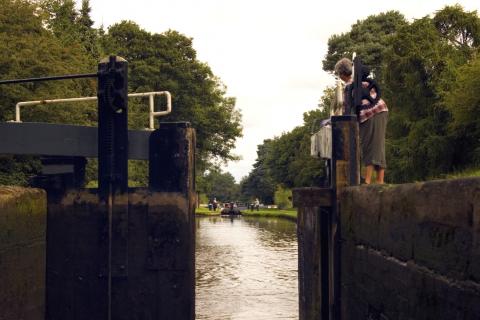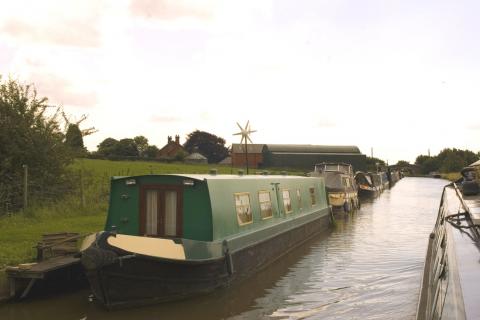Canals work better with courtesy
May 2017 - Debate about boating etiquette varies around the system. In London many are happy if boaters manage to close lock gates and drop paddles but elsewhere there is a sort of annual build up of irritation – especially by those who feel we are losing the common courtesies that made the system function, as Peter Underwood reports.
As more boats emerge onto the waterways each Spring the volume of complaints rises about the lack of consideration displayed by some boaters – travelling too fast, stealing locks, not being friendly, the list goes on, and now one boatyard boss and hire fleet owner has decided the time has come to urge a return to old ways.
Unlike the sea and some rivers, basic boating etiquette doesn't actually form part of maritime law but the canal system does have rules, some enshrined in guidelines issued by the Canal & River Trust and others unwritten, but engraved in the folklore of working boats.
“The etiquette of boating is there to make life better for everyone,” according to Norbury Wharf managing director Simon Jenkins.
Waiting to swap locks on the Audlem flight - just good manners
“We try to pass it on to our hirers when we set them on their way because we know that if they are friendly and stick by the rules they will have a lot more fun.
“It should be a matter of respect for other users that boating etiquette is observed, and a lot of things are commonsense, like slowing down past moored boats, not turning a lock around in the face of a boat travelling towards a lock if its in their favour.
“Most of these things are two-sided and tying your own boat up properly, is the other side of not passing moored boats at speed.
“The great thing about the canals is the friendliness and you will make more friends if you walk up to a lock while you are waiting your turn, offer to help and do exactly what the steerer of the boat in the lock asks. If they don't want help, just relax and chat.”
The rules are clear enough about not running engines between 8.00pm and 8.00am, but other situations are less clear, such as when to allow another boat to overtake? Simon suggests it is a decision for the boat in front as it's steerer is in the best position to judge a good spot.
And then there is the etiquette derived from the days of working boats when the small back cabin was a family home and privacy in short supply.
“Not peering into the windows of other peoples boats, not standing on a boat without being invited first, not peering in through someone's doors or hatch”, that all comes from working boats, Simon explained.
“If breasted-up then announcing that you are crossing over the inside boat, and not crossing in front of open doors, is the thing to do. Working boats would always maximise mooring space, closing up any gaps to allow as many boats as possible to tie up.
“When the working boats were on the canal boating etiquette was a way of life to the people on the boats.
“Sadly today it does seem like some of it is lost in time. When I was boating on the canal there seemed much more camaraderie between the boaters, offers of a tow to a stricken boat, or help to a broken down boat, offers to take someone's lines in the wind, and even offers to breast up if a busy location was full, the list is pretty long.
“Maybe modern attitudes and the real, or imaginary, time pressures on boaters don't allow it any more.
“Or maybe it is just that there are many new boaters learning the ropes and once they have settled down they will be as courteous and friendly as previous generations – I certainly hope so.”
Photos: (1st) Waiting to swap locks on the Audlem flight - just good manners, (2nd) Passing moored boats at tickover.







